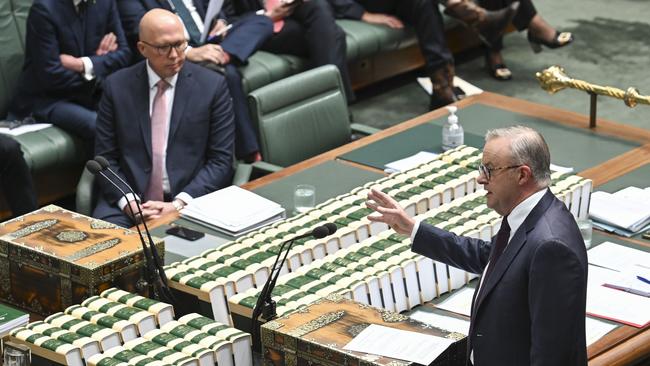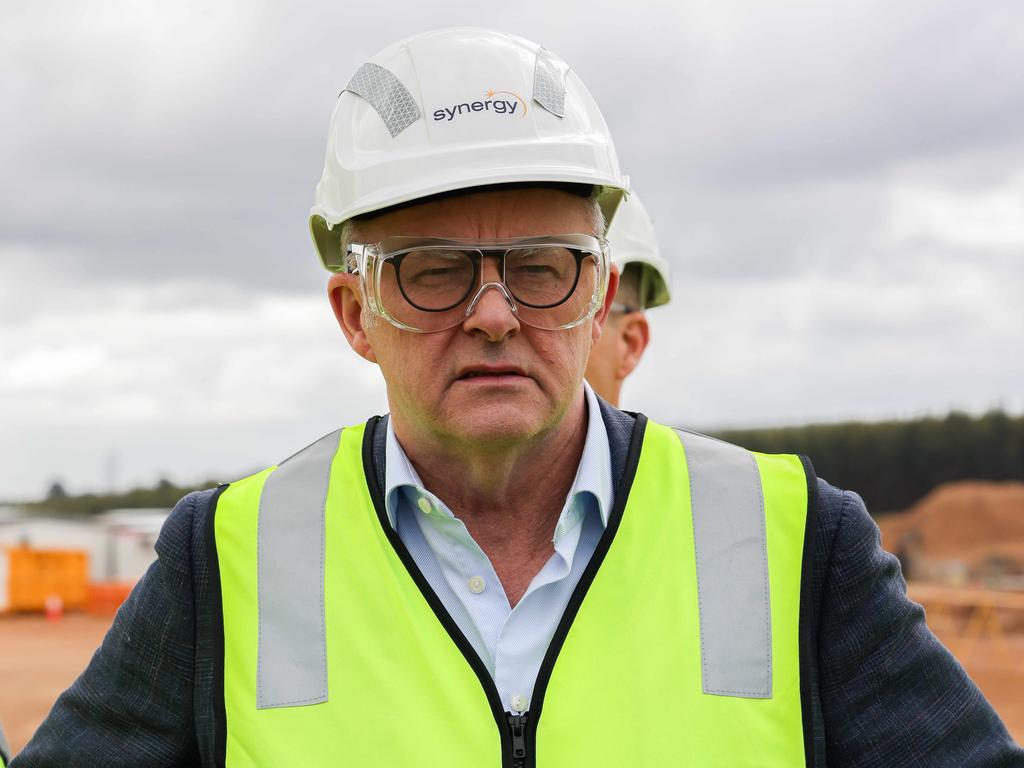
Their combined poor standing among voters is virtually unrivalled at this level, and in the case of the Prime Minister as bad as it gets for him.
Labor’s tactics of defaulting to the politics of personal attack may have worked to further dimmish the Liberal leader but the transactional cost of this folly has been greater for Albanese.
In net terms, it has backfired in spectacular fashion.
The Prime Minister’s personal support is now on par with the final poll for Scott Morrison before the May 22 election.
An alternative view is that the Opposition Leader’s singularly focused pursuit of the Palestinian visa issue has scored him points against Albanese but has come at a personal cost by dragging the parliament into the bog.
Either way, both leaders can now reflect on an unenvious record of having identically low approval ratings – at minus 13.
There is no victory in this result. The swill blanket has once again descended over Canberra.
This declaration of mediocrity is mirrored in the broader party vote. Labor and the Coalition are now locked into a 50-50 two-party-preferred split for the second poll in a row.
Labor’s primary vote of 32 per cent is unchanged on the last Newspoll and below the last election result that saw it sneak over the line.
The Coalition has lifted since May 2022 but is still nowhere near the level of base support to be competitive at 38 per cent. It will need a four in front of its primary vote, and more, to start tipping the scales in its favour.
There are two conclusions, equally plausible, to draw from this. The electorate has either embraced a blind complacency or a deliberate drift towards a hung parliament.
Neither of the major parties has been able to break out of this quagmire since the start of the year.
There is now clear evidence that Labor’s strategy of trying to diminish Dutton’s appeal has consequences for its own re-election.
The most statically significant movement in the latest Newspoll has been the rise in dissatisfaction with Albanese’s performance.
At 54 per cent, this is the worst result for him since becoming Prime Minister.
If Labor thought the low point was the post-voice referendum assessment, it needs to think again.
For Dutton, whose job as Opposition Leader is to oppose, his own poor numbers are a lesser problem than those for Albanese.
Dutton has capitalised on Labor’s failings and a perception of Albanese as a weak leader.
Yet he has failed to make the transition to his own electability. And this is the significant danger for him.
The central issue that will determine this contest is obvious, yet it is one Dutton, and Albanese, have been loathingly unwilling to engage.
With living standards in Australia having fallen further than any comparable country over the past two years, it is beyond belief that a more sophisticated debate about economic management remains an understudy of the current parliamentary theatre.
The polling reflects this.
The Coalition has failed to carve out any meaningful equity in the contest over which side would have handed the inflation problem better.
This is the second most extraordinary insight from the latest Newspoll.
Most voters don’t think inflation would be lower today if a Coalition government was in power.
For Dutton, this should sound alarm bells. If the Coalition can’t win this argument, it has already lost the battle.







Anthony Albanese and Peter Dutton are locked into a cycle of mutually assured destruction.